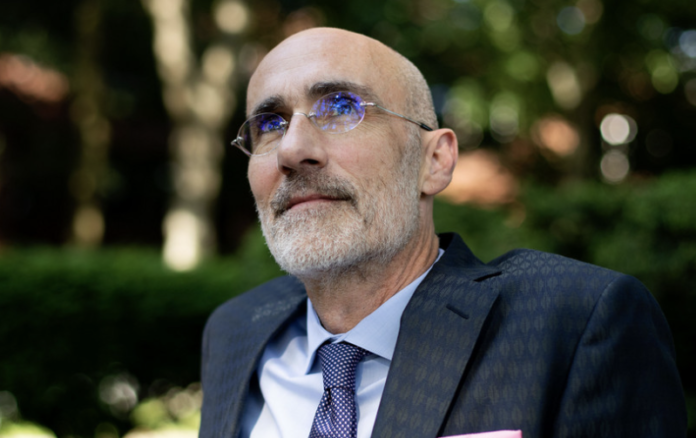Arthur Brooks has been in charge of the US Institute of Entrepreneurship for more than ten years. Now he is a full -time scientist who deals with happiness issues. Here is his guide to do it in Washington without sacrificing his humanity.
Most people come to Washington in search of power.
Authority to change policy; the authority to choose new leaders; the authority to influence the most influential judges; The ability to tell stories that shape people's consciousness.
But the oldest story in Washington is that the desire for power is almost always due to the fact that, according to everyone, he really wants: happiness.
Of course, it's not just Washington's story. It is part of a much greater story that the country suffers from.
The expected life expectancy in America has decreased compared to what was to the pandemic, which is caused by so -called death from despair: deadly drug overdose, alcohol -related diseases, and suicide.
Depression, anxiety and chronic diseases are increasing.
General Surgeon Vivek Murty described the national "epidemic of loneliness", which has the same effect on the human body as the smoking of 15 cigarettes a day.
If there are a positive side in these gloomy trends, then more and more people are trying to find out what makes us happy.
A few years ago, Arthur Brooks changed his work in one of the leading analytical centers in Washington to a career of a scientist who deals with happiness. He is also the author of bestsellers on this topic and has recently published a book with a winewhich called "Build the Life you want: art and science to become happier."
In today's show, he will share the secret that underlies his research, and we hope that you will find a decent idea for reflection during the holidays.
In the city of strikes, workaholics and perfectionists, many people - perhaps even you - come to Washington, believing that success will lead to happiness, and then they are confused and even crushed when they reach the first and the second do not follow.
Brooks long -term studies show that we have done everything in the opposite: in fact, happiness leads to success, not the other way around.
The question, of course, is how we get happiness?


